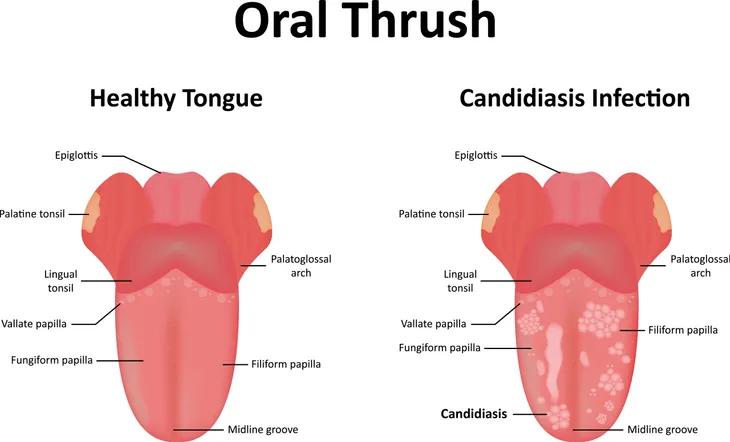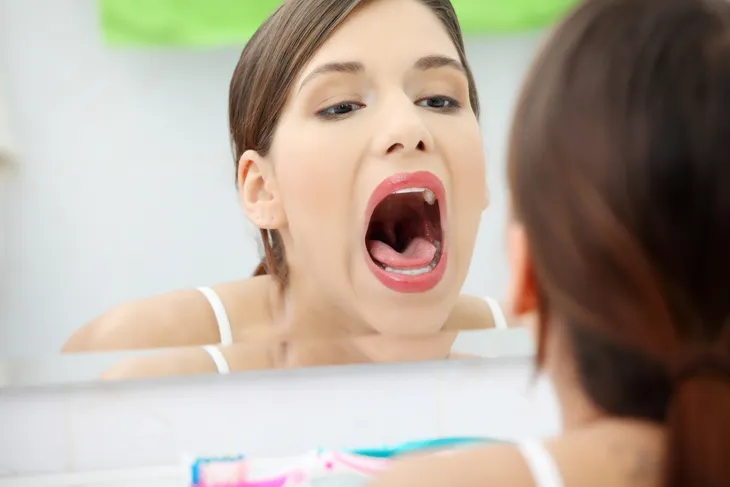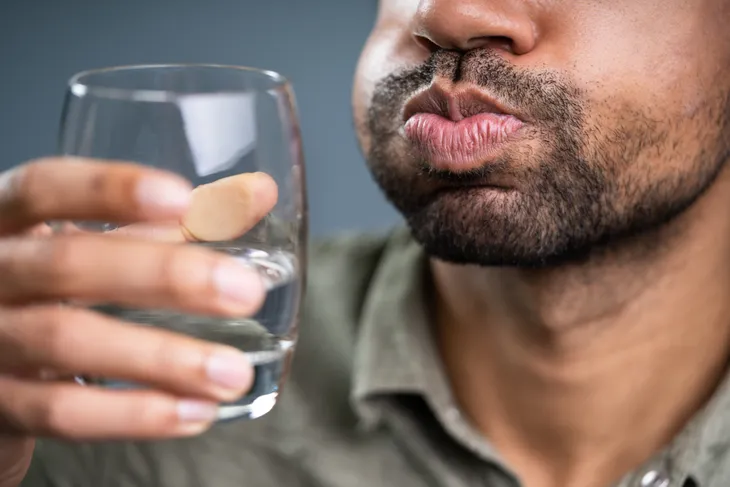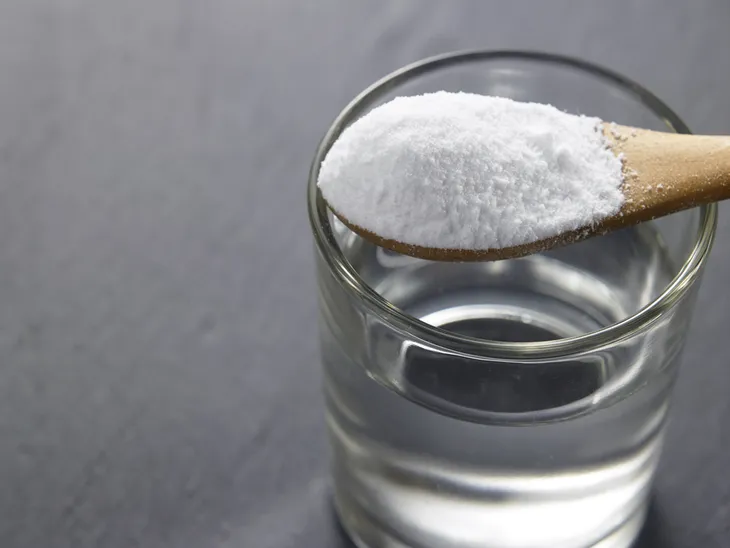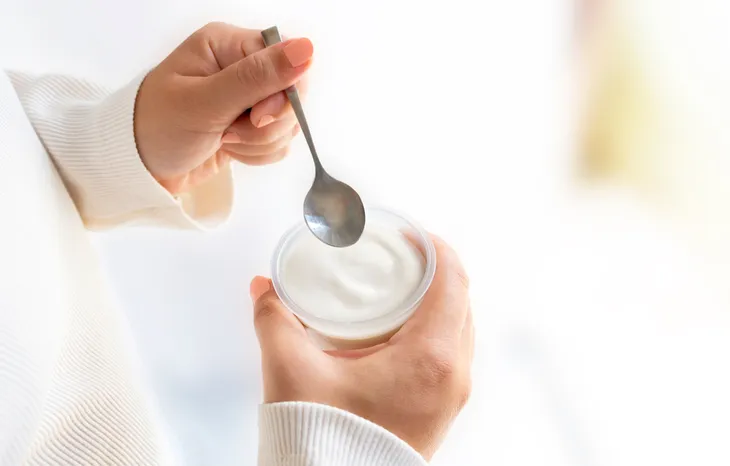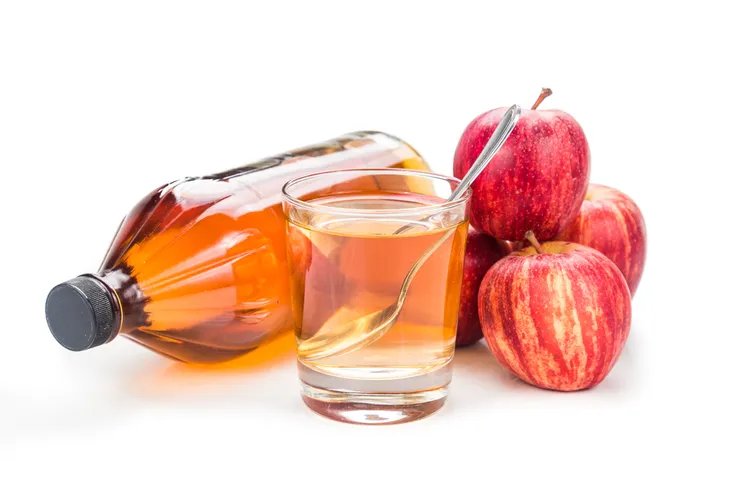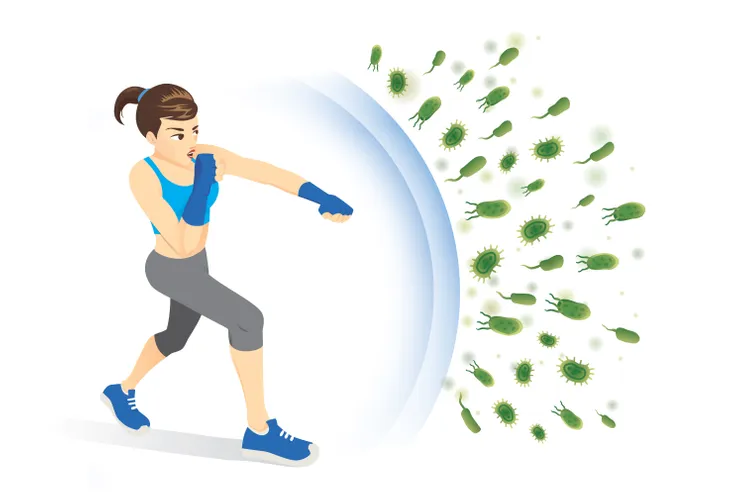Oral Thrush may be common but looking in the mirror and noticing white spots developing on your tongue, cheeks, and throat is alarming for most people. That’s not to say that symptoms of oral thrush shouldn’t be taken seriously.
The good news is, minor cases of oral thrush can be treated with nothing more than a few pantry items that you likely already have on hand! Having said that, its appearance in your mouth may also indicate the existence of some other medical problem.
Today, we’re going to take a deeper look into this infection, including what it is, when you need to see your doctor, and effective home remedies for oral thrush you can try. Let’s go!
What Is Oral Thrush?
In short, oral thrush is a fungal infection. Referred to as oropharyngeal candidiasis by the scientists in charge of naming these things.
Oral thrush occurs when a yeast-like fungus grows inside the mouth. It can be triggered by smoking, medications, pregnancy, or as a byproduct of another illness.
Symptoms of Oral Thrush
As we discussed earlier, symptoms typically include the development of white patches on the inner cheeks, tongue, roof of the mouth, and throat. Redness or soreness can also occur, as can a loss of taste, cracking or redness at the corners of the mouth, and pain while eating or swallowing.
In severe cases, the lesions may spread to your esophagus, known as Candida esophagitis. Symptoms may include difficulty swallowing or pain.
Diagnosing Oral Thrush
Diagnosing oral thrush is as easy as a quick visit to your doctor. It is recommended to seek medical care should you or someone that you love develop it because a full recovery is contingent on a 7 to 14-day cycle of prescription antifungal medicine.
Effective Home Remedies for Oral Thrush
Even though oral thrush is typically a non-serious infection for healthy individuals, it’s still important to get the infection under control.
In addition to your prescription, you could ease some of the discomforts that come from oral thrush with a few home remedies. Beat back the redness, soreness, and more with the following 6 home remedies!
Saltwater Gargle
Some home remedies stand the test of time. Number one on the list of pantry pain relievers must be the saltwater gargle.
Saltwater gargles are safe, easy, and can be incredibly effective at mitigating some of the day-to-day discomforts that come with an ongoing oral thrush battle. All you need to do is stir a ¼-teaspoon of salt into 8-ounces of warm water and toss it around your mouth at least twice a day.
Baking Soda
Baking soda is considered a “viable alternative” to other medical treatments in combating candida infections. Unlike saltwater gargles, sloshing around a baking soda-based mixture in your mouth has been shown to beat back the symptoms of oral thrush! Not bad for a pantry item that most of us already have on hand.
To try this one out yourself, mix a ½-teaspoon of baking soda into a cup of warm water, gargle it, and spit it out! You’ll probably want to rinse your mouth out with water a few times post-gargle too for good measure.
Yogurt
If you’re a regular here at ActiveBeat, then you know that not all bacteria are bad. In fact, some bacteria are essential to sustaining and maintaining a healthy body and mind. Plus, supplementing those kinds of bacteria usually garners stellar results.
Probiotic yogurt is a great source of good bacteria. But more specific to our discussion here, the probiotics in probiotic yogurt have been credited with inhibiting the early stages of candida development by reducing their growth, cell adhesion, and filamentation. When choosing a yogurt, just be sure to pick one without a lot of added sugar. Put another one on the board for yogurt!
Lemon Juice
Lemons are easily one of the most popular citrus fruits in the world. And sure, a little squeeze may add some extra zing to your tuna steak, but on the biological level, lemon juice does so much more.
Lauded for its profound antiseptic and antifungal properties, lemon juice has been studied as a viable treatment option for oral thrush for years. The results from this study reported that lemon juice was more effective than gentian violet in HIV-positive patients suffering from oral thrush.
To try this one out yourself, simply mix the juice from half a lemon with 1-cup of water and either drink it or gargle it. You don’t necessarily have to dilute the lemon juice, though the acidity of the undiluted juice may create a slight burning sensation.
Apple Cider Vinegar
Is there anything that apple cider vinegar can’t do? It’s loaded with health compounds, may help lower blood sugar levels and manage diabetes, may aid weight loss, improve heart health in animals, and has been shown to ward off harmful bacteria.
Apple cider vinegar has antifungal properties too, which make it a great candidate for staving off the symptoms of oral thrush. To try this home remedy, mix 1-teaspoon of apple cider vinegar with 1-cup of water, swish the mixture around in your mouth, spit, and rinse.
Vitamin C
Oral thrush usually happens to those already battling immune deficiency disorders. Vitamin C supplementation has long been to bolster the immune system and encourage the production of white blood cells in the body.
You may not need to supplement with vitamin C, but an influx of this powerful immune-boosting substance couldn’t hurt. Talk to your doctor, and maybe request a blood test to determine if you are vitamin C deficient and can benefit from these popular supplements.
Complications
Oral thrush is rarely a serious problem for individuals with healthy immune systems. That said, as we mentioned earlier, severe cases of oral thrush can spread to your esophagus which can be painful and even life-threatening if left untreated.
Further, if your immune system is weakened you may be more at risk for developing serious complications. Healthline explains, “Without proper treatment, the fungus that causes thrush may enter your bloodstream and spread to your heart, brain, eyes, or other body parts.” This is called invasive (or systemic) candidiasis, which may lead to a life-threatening condition called septic shock.
When to See a Doctor
You should always see a doctor if you develop symptoms of oral thrush. It really is as simple as that.
Sure, oral thrush is a minor issue that can clear up in a couple of weeks, sometimes without the need for prescription antifungal medication. But there are a lot of other, more serious conditions that can present as oral thrush, rendering a self-diagnosis impossible. Oral thrush may also develop as a symptom of a more serious immune system condition.
You really should seek medical attention if you notice the symptoms that we’ve discussed here. But you can find comfort in knowing there are effective treatments for it, and it should clear up without complications.
How to Prevent Oral Thrush
If you’re reading this article to familiarize yourself with oral thrush ahead of time, good for you! Being proactive about your health is always a good choice. So, what can you do today to prevent the development of oral thrush in the future?
Rinsing your mouth after meals, brushing your teeth at least twice a day, visiting your dentist regularly, and brushing your gums, tongue, and the inside of your mouth! If you wear dentures, you must take them out and clean them every night. You should also stop smoking too.
Oral thrush is common but, as we’ve learned today, it can be treated effectively using a combination of professional help and good old-fashioned home remedies.

